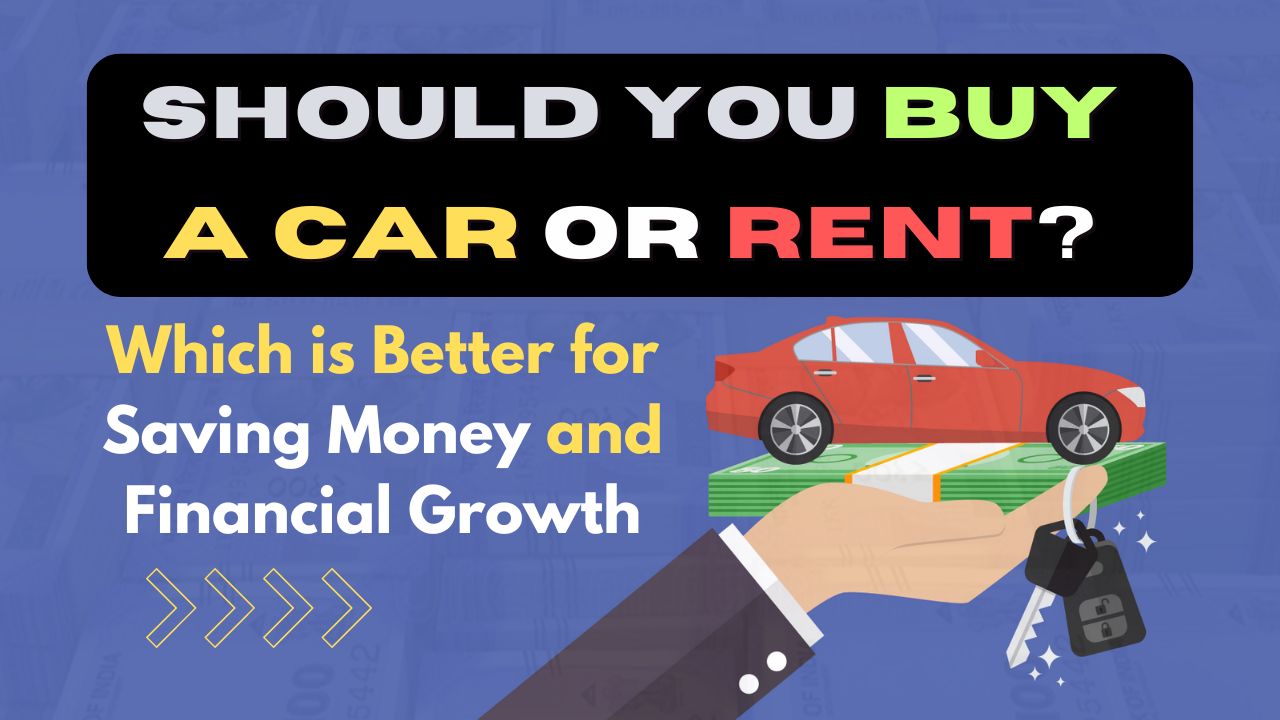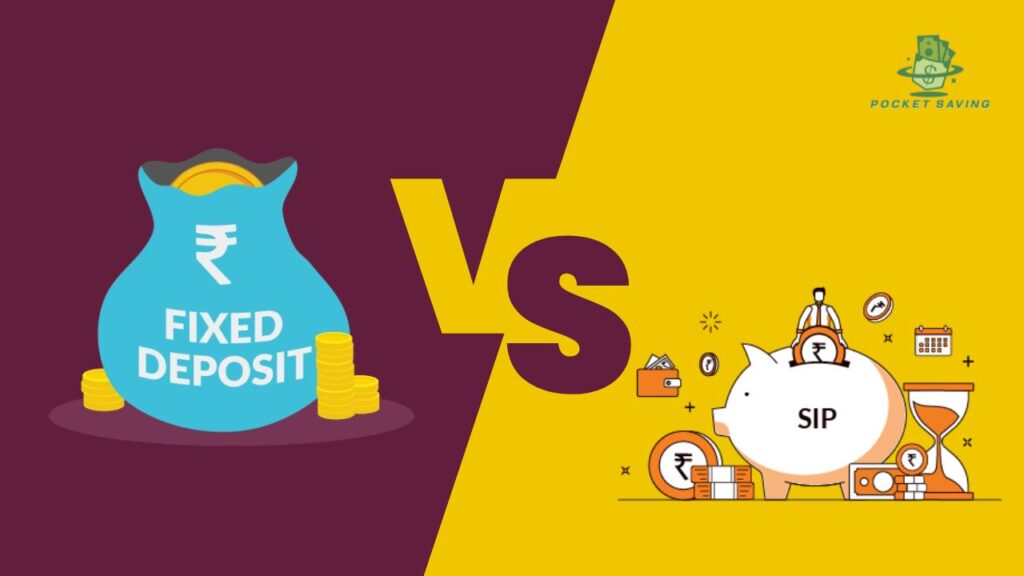Deciding whether to buy or rent a car is a significant financial decision. Each option has its own set of advantages and disadvantages, and the right choice depends on your individual circumstances. Let’s break down the pros and cons of buying versus renting a car to help you make the best decision for your savings and financial growth.
Suggested Read: Smart Ways to Achieve Financial Independence Without a Job
Should You Buy or Rent a Car?
Buying a Car: The Long-Term Investment
Pros:
- Ownership: When you buy a car, it’s yours. This means no restrictions on how you use it, and you can sell it whenever you want.
- Building Equity: Each payment you make on a car loan gets you closer to owning the car outright. Eventually, you’ll have a valuable asset.
- No Mileage Restrictions: Unlike renting, you can drive as much as you want without worrying about extra fees.
- Personalization: You can modify and personalize your car to fit your preferences.
Cons:
- Depreciation: Cars lose value quickly. A new car can depreciate by 20-30% in its first year.
- Maintenance and Repairs: As a car owner, You’re responsible for all repair and maintenance costs, which can add up.
- Higher Insurance Costs: Owning a car can come with higher insurance premiums, particularly for newer or more luxury models.
- Large Upfront Cost: Buying a car requires a significant upfront investment, either in the form of a down payment or full payment.
Renting a Car: Flexibility and Lower Initial Costs
Pros:
- Lower Initial Cost: Renting a car typically requires a smaller upfront payment compared to buying.
- No Worry About Depreciation: Since you don’t own the car, you don’t need to worry about its value decreasing over time.
- Lower Maintenance Costs: Rental agreements usually cover maintenance and repairs, saving you money and hassle.
- Drive New Cars: Renting allows you to drive a new car every few years, which is great if you like having the latest model.
Cons:
- No Ownership: Rental payments don’t build equity. Once your lease ends, you have no car and no asset.
- Mileage Limits: Most rental agreements come with mileage restrictions. Going over these limits can result in expensive fees.
- Long-Term Costs: Renting can be more expensive in the long run if you continually lease new cars.
- Restrictions: You may face limitations on how you can use or modify the car.
Key Financial Factors
When deciding whether to buy or rent a car, here are some financial aspects to keep in mind:
- Total Cost of Ownership (TCO): or buying, include the purchase price, loan interest, insurance, maintenance, and depreciation. For renting, consider monthly payments, insurance, and potential over-mileage fees.
- Monthly Budget: Look at your monthly income and expenses. If you can afford a higher monthly payment and a down payment, buying might be better. If you need lower monthly costs, renting could be a smarter choice.
- How Long You’ll Use the Car: If you plan to keep the car for many years, buying is usually cheaper in the long run. If you like to switch cars every few years, renting might make more sense.
- Investment Opportunities: Consider whether you could make more money by investing the funds you would use to buy a car. If those investments offer higher returns, renting might be a better financial move.
Also Read: 10 Smart Financial Tips to Increase Your Savings
Conclusion
Whether to buy or rent a car depends on your financial situation, driving habits, and personal preferences. If you want ownership, can handle higher payments, and plan to keep the car for a long time, buying is likely the better choice. On the other hand, if you prefer lower initial costs, enjoy driving new cars, and want to avoid maintenance concerns, renting might be the way to go.
Consider your financial landscape and long-term goals, weigh the pros and cons, and choose the option that best aligns with your needs. This way, you can ensure that your decision supports both your immediate financial situation and your future financial growth.
FAQs
The main advantages of buying a car include ownership, the ability to build equity, no mileage restrictions, and the freedom to customize and modify the vehicle as you wish.
The main disadvantages are depreciation, higher maintenance and repair costs, potentially higher insurance premiums, and the significant upfront cost associated with purchasing a car.
Renting a car offers lower initial costs, no worries about depreciation, lower maintenance expenses (since they are often covered by the rental agreement), and the ability to drive a new car every few years.
The disadvantages include not building any equity, mileage limits that can result in extra fees, higher long-term costs if you continually rent, and restrictions on customizing the car.
If you have a limited monthly budget, renting might be a better option because it usually requires a lower monthly payment compared to a car loan for purchasing.
If you can invest the money you would use to buy a car and earn higher returns, renting might be the better financial choice. Consider potential investment gains versus the cost of buying a car.
In some cases, buying a car can offer tax benefits, such as deductions for interest on a car loan. However, tax benefits vary by location and personal situation, so it’s best to consult with a tax professional. Renting usually doesn’t offer the same tax benefits.
When considering the resale value of a car, keep the following factors in mind:
1. Brand and Model Reputation: Choose brands and models known for retaining their value. Research which cars have a strong reputation for reliability and resale value.
2. Depreciation Rates: Understand the depreciation rate of the car you’re interested in. New cars typically depreciate the most in the first few years, so consider how quickly the car’s value will drop over time.
3. Condition and Maintenance: Keep the car well-maintained and in good condition. A complete service history and regular maintenance can significantly preserve the car’s value.
4. Mileage: Lower mileage cars generally have a higher resale value. Be mindful that higher mileage will decrease the car’s value more quickly.
5. Market Demand: Stay informed about market trends and consumer preferences. Cars that are in high demand tend to retain their value better.
6. Features and Options: Opt for cars with popular features like advanced safety systems, modern infotainment, and fuel efficiency, as these can enhance resale value.
7. Color and Aesthetics: Neutral colors such as black, white, and silver often have better resale value as they appeal to a broader range of buyers.






[…] Suggested Read: Should You Buy a Car or Rent? Which is Better for Saving Money and Financial Growth […]
[…] Also Read: Should You Buy a Car or Rent? Which is Better for Saving Money and Financial Growth […]